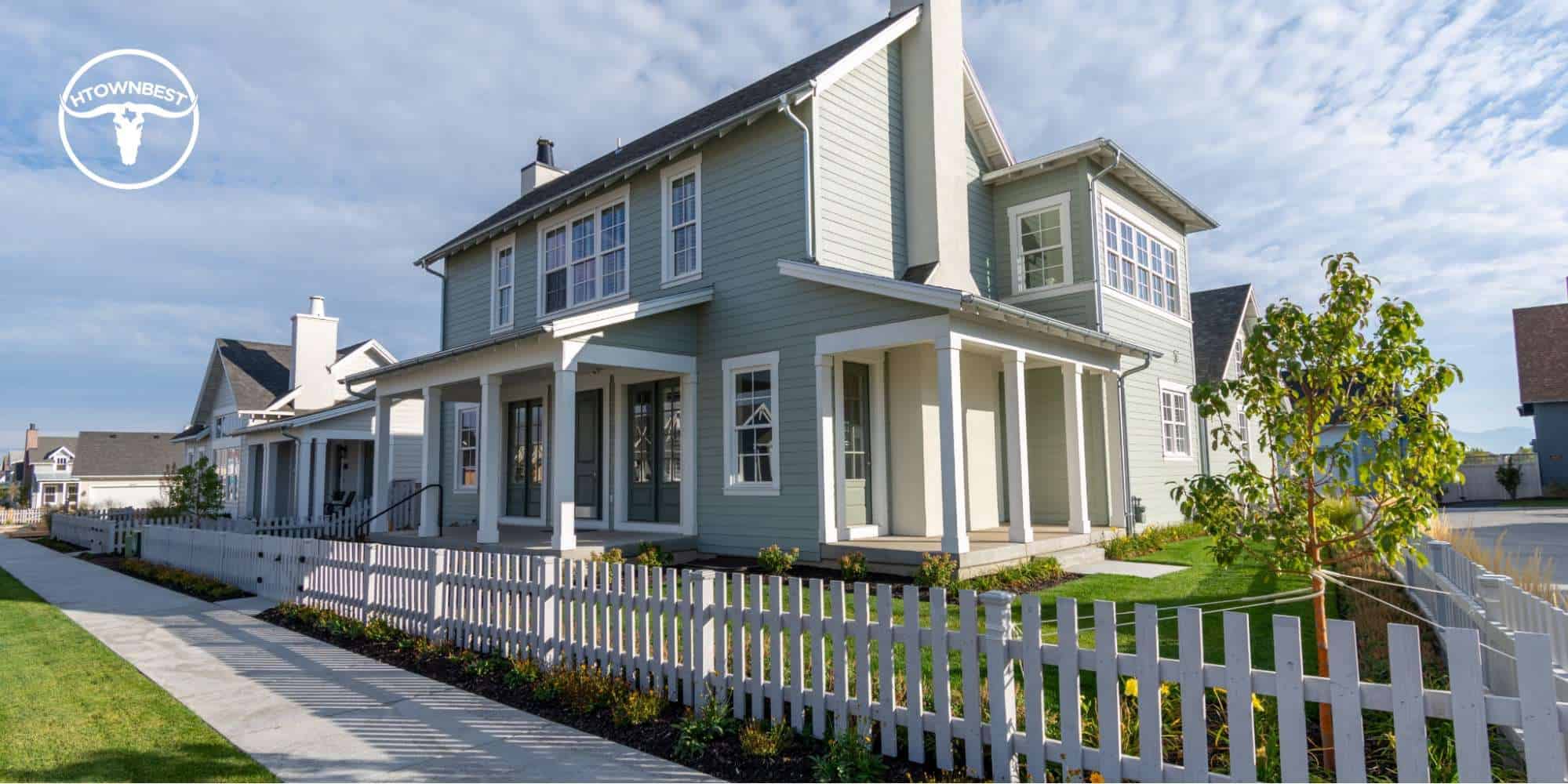Why Don’t Houston Homes Have Basements?

Basements aren’t entirely non-existent in Houston real estate, but we have to admit – it is a rarity.
Given the geographical location of Texas, it is prone to gulf coast hurricanes thus leading to many instances of flash floods. We initially considered this the main reason why most homes don’t have basements in them.
Houston generally doesn’t have basements because of a number of natural circumstances. These include the water table, humidity, soil type, construction difficulties, and waterproofing requirements.
While there are houses that come with a basement, structures that are likely to include an underground floor are usually older homes, or non-residential buildings.
Let’s explore each of these factors in detail.
Houston Has A High Water Table

An area’s water table pertains to the boundary between dry earth layers and the soil saturated with sediment and water.
When we say that Houston has a high water table, it means we don’t have to dig deep enough to have access to an underground water source. This also means that if you have a basement, it can easily be exposed to more moisture and groundwater.

Without the proper lining and waterproofing, water can easily seep through the permeable concrete and damage the flooring. Another detriment is that the water pressure may cause mud sliding, especially if the basement has insufficient shoring.
Another related issue involves some areas of Houston where the bedrock is too close to the natural ground line, making the soil less workable.
In addition to all this, a recent 2022 report from the World Economic Forum shows that Houston is the 10th largest city that is slowly “sinking” as the sea levels rise.
According to the Texas Living Waters Project, this may also be caused by the increase of groundwater usage and constant pumping. To date, almost 3,200 square miles of Houston land has sunk to a depth of more than one foot.
Houston Humidity Makes Basements Inhabitable

Houston is regarded as one of the most humid cities, not only in Texas, but in the US. According to annual average weather reports on Houston, we can experience 75% relative humidity on a typical cloudy day.
This is a far cry from the ideal humidity level most suited for basements. Hunker states that the recommended level only ranges from 30 to 50 per cent, and anything above may cause discomfort or health risks.
Now, how does humidity affect basement spaces?
Any space without adequate ventilation is already detrimental, and with the additional moisture in the air, this can damage the area. This is the reason why woodwork may rot, and wall paints may peel without proper material preparation.
Another problem that may arise is mildew and mold growth, especially if the basement remains moist and unused for long periods of time. Ultimately, we can expect a humid basement to have poor indoor air quality, which is never fun to have.
Houston Soil is Expansive

As per the Houston Rose Society, the soil types in the Houston area are predominantly clay, loam, and soil, with dark gumbo clay as most common.
Dark gumbo clay is a soil type with low permeability, so it can easily retain moisture. Whenever it is exposed to moisture or water, it easily becomes slippery and wet.
Because of this, the soil may swell because of the water content, then slowly shrink as it dries. This classifies it as an expansive soil, making it harder to work in the construction aspect.
Expansive soils don’t make for a solid foundation for load-bearing structures, especially for ones below the natural ground line. In order to build underground structures, you have to drill piers with heavy reinforcement.
This makes the process of building a basement tedious, laborious, and expensive; which is why most Houstonians would opt out of having it in their home.
Houston in Moderate Flooding Risk

Houston was hailed America’s Flooding Capital after one too many incidents with extreme rainfall.
According to the Texas Flood Factor Report, there are more than 80,000 areas in Houston with a 26% chance of severe flooding. This constitutes around 30% of the city.
While residential zones and social facilities have a minor risk, roads, commercial and critical infrastructures remain at moderate flooding risk. This requires communities to develop adaptive measures to lower insurance costs and mitigate damages during flooding.
The general reason behind the flooding is the rapidly changing environment. This pertains to rising sea levels, coastal storms, and new weather patterns.
However, the more specific issue with the flooding is due to poor zoning ordinances, existing soil constitution, poor preventative structures and geographical location.
Given that Houston is located near the coast and the bayou, it doesn’t have enough reservoirs built, or flood control efforts initiated. While the drainage in the metropolitan area is improved, many cannot say the same for residential areas.
That said, you may need to choose a neighborhood with the lead flooding risk.
Should You Have A Basement?

Having a basement in your home comes with a lot of advantages. This includes having additional general storage space of the house, a workshop, or even an extra room where guests could stay in.
This could mean added value to your home.
So if you’re thinking of adding a basement to your home in Houston, it is still a possible endeavor. However, not the most practical addition to a home.
We recommend you take all things we discussed into account, since it will cost more to have it built in Houston than in other areas of the country.
Having a basement in Houston will mean spending more on structural reinforcement, as well as investing in efficient HVAC systems to make the space more habitable.
Moreover, local regulations and zoning restrictions in Houston encourage their residents to build out, instead of building up or down. This is because there is plenty of land in the state.
If you’re thinking of building your basement as a storm cellar or a safety enclosure, you need to ensure that it meets the FEMA or the Federal Emergency Management Agency criteria for safe rooms.
But if you’re looking to move into a home in Houston with a basement, always check the habitability, cleanliness, ventilation, and structural stability before paying up.





